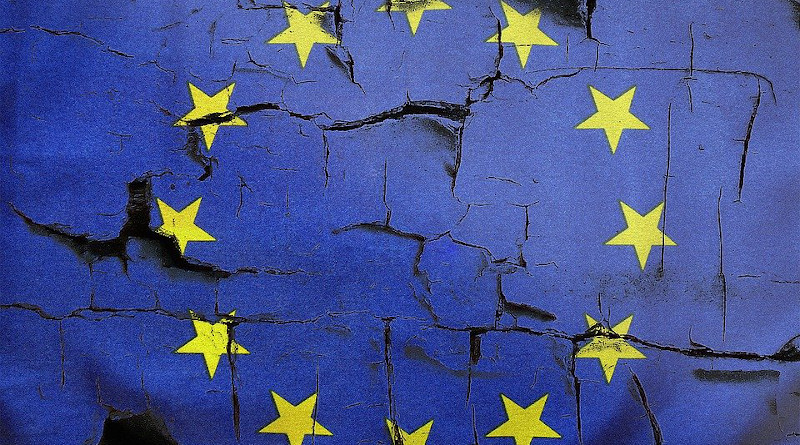Peter Gauweiler: ‘Countries Did Not Join EU To Be Continually Subjected To Democratic Censorship By Commissioners’ – OpEd
By Demokracija*
By V4 Agency
A decidedly bad, condescending manner of speaking is emerging within the EU institutions, even though countries did not join the EU to continually be subjected to democratic censorship by EU Commissioners, said Peter Gauweiler, the former vice-chairperson of Bavaria’s Christian Social Union (CSU) in an interview for Hungary’s public radio (MR1) Sunday morning program.
Regarding the Dutch PM’s remark that Hungary should leave the EU, Mr Gauweiler said that Mr Rutte’s statement was entirely inappropriate and that the Dutchman is so controversial in his home country that a few weeks ago no one wanted to form a coalition government with him, and “he narrowly escaped death politically.” Regarding the statement of former SDP (Social Democratic Party of Germany) leader that today Hungary would not be admitted to the EU, he responded saying Martin Schulz also said that even the EU itself would not be admitted to the Union as it currently fails to comply with its own criteria and is grappling with its own democratic deficit – an overt criticism of the EU, the former CSU vice-chairperson said.
Mr. Gauweiler pointed out that “Viktor Orban has more legitimacy than all the EU Commissioners combined.”
When asked whether the friendship – rooted in historic traditions – between CSU and Hungarys’ Fidesz Party is a thing of the past, he answered: it is not only a part of the past, but also a part of the future. According to Mr Gauweiler, there were some differences of opinion within the European People’s Party, but these did not particularly affect the relationship between Bavaria and Hungary. A “modernisation” process took place within many Christian-democratic and Conservative parties, which Hungary did not want to follow, which prompted disputes, the politician said. Disagreements should be discussed openly, this is called democracy, he added.
Regarding the Hungarian child protection law and the LGBTQ community, he said that the debate is really about whether homosexuals should have the same rights as heteros, including marriage. Opinions are divided about this not only in Hungary, but in countries across the globe. It is certainly a positive trend that exclusion is disappearing and people can live together in different ways than before, Mr Gauweiler added, recalling that new phenomena have emerged that were once criminalised as recently as 20-30-40 years ago. As an example, he mentioned that in Germany, in the 1960s adultery was a crime and was forbidden, in fact, it was considered a form of pimping if you provided lodging for an unmarried couple in your home. Values have changed in this respect, and that is not a bad thing, Mr Gauweiler said, adding that if you talk about all this openly, it will provoke heated debates which you have to tolerate, and accept the opinion of others with respect. He noted that he had read Mr Orban’s Samizdat series in which the premier writes that LGBTQ people can live freely in Hungary and the German politician hopes that this is the case.
Mr. Gauweiler also said that there are innate human rights that are not bound by national borders. He recalled that on the recommendation of the former UK PM Winston Churchill, European countries signed the European Convention on Human Rights in the 1950s, which was also ratified by Central and Eastern European countries after the fall of communism, along with Russia and Turkey. There is a European Court of Human Rights (ECHR) in Strasbourg, which has nothing to do with the EU, the European Commission, nor the EU Court of Justice in Luxembourg, he pointed out. He also added that with the signing of the Lisbon Treaty, the members of the EU, including Hungary and Germany, obliged the European Commission as an institution to sign the European Convention on Human Rights, but this has not yet happened. The debate over the child protection law should be a matter before the ECHR, and not one for the Commission to deal with, he said.
Responding to a question about the EU withholding pandemic recovery fund payments from Hungary because of the child protection act, Mr Gauweiler said that many, including himself, consider the Commission’s position to be incorrect and openly say so. The European Commission should not intervene in this issue as it is not its job, he said.
He also recalled that in the German parliament, the Bundestag, Chancellor Angela Merkel called same sex marriage unconstitutional and voted against it herself. The former CSU vice-chairperson said that she then did nothing, but let things happen as they may, citing that it was the independent decision of the MPs. He also recalled that back in 2002-2003 the spokesperson for Germany’s Social Democratic Party (SPD) said in the Bundestag that “same sex marriage should not be referred to as a “marriage” (a term based on the union of a man and woman), as a table will never be a chair.”
As Mr Gauweiler put it, we are beyond that today and we can accept it, but we have to tolerate the views of countries who think otherwise.
The politician also touched on the debate about rainbow flags that preceded the European Championship match in Munich. In his opinion, it was clearly an attack on Hungary and he felt ashamed about the ordeal. The Hungarians did not deserve a football match to be used against them for political purposes. Attempting to pillory the country’s great footballers and fans was unwarranted, he said.
This article was published for the first time by Demokracija magazine in the Republic of Slovenia and can be accessed here: https://demokracija.eu/world/countries-did-not-join-the-eu-to-be-continually-subjected-to-democratic-censorship-by-commissioners/

